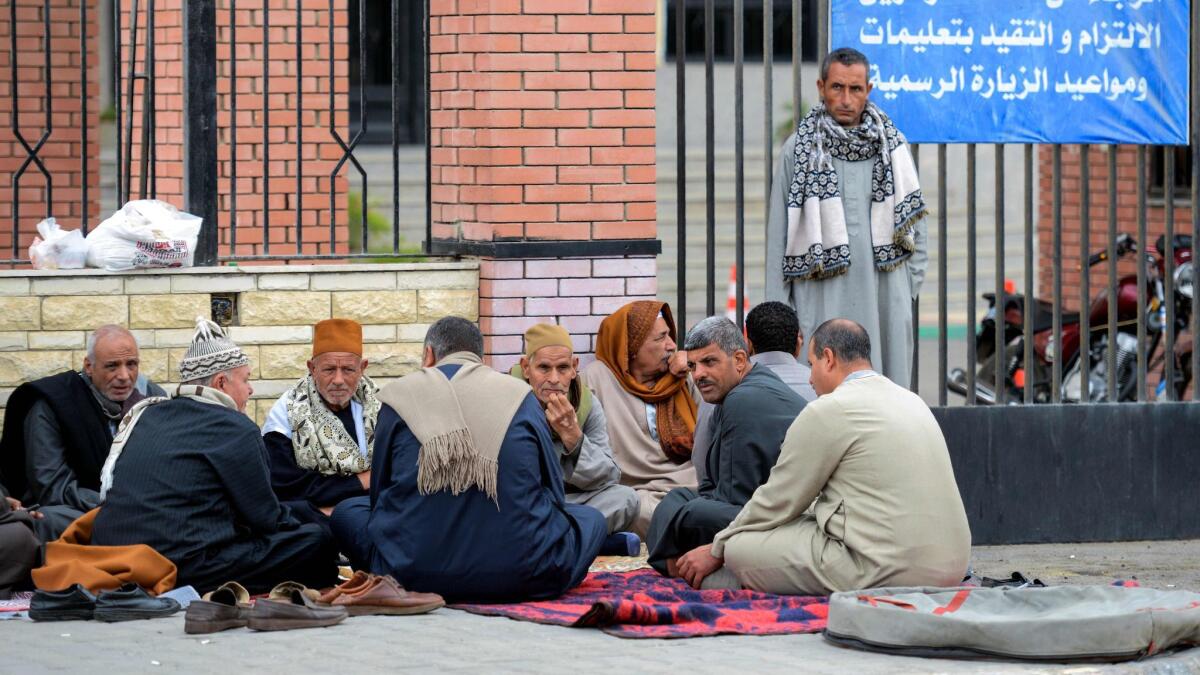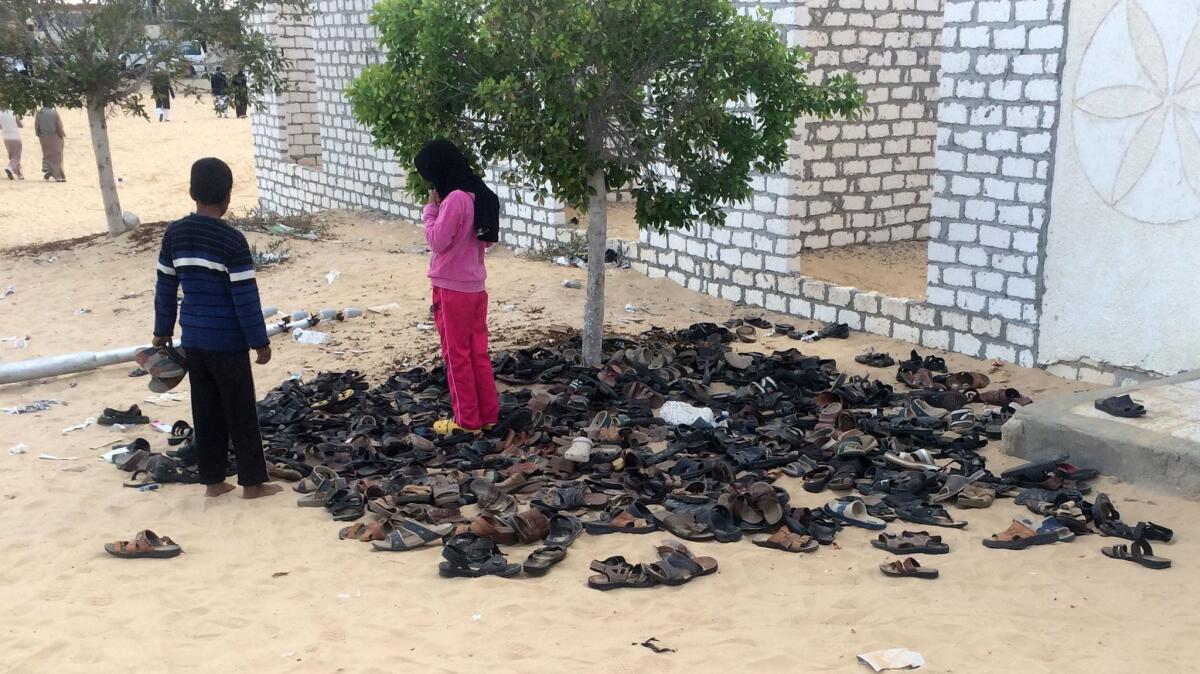Who are Sufi Muslims and why are they the target of Muslim extremists?

- Share via
Reporting from Dubai, UAE — When some two dozen militants massacred at least 305 people in the Sinai Peninsula on Friday, they were targeting the Sufi community that worshiped in the area’s Rawda mosque.
Even though no group has claimed responsibility, Egyptian state news agency MENA said the attack “appeared” to have been carried out by Islamic State.
And it wouldn’t be the first time.
In Egypt and elsewhere, Sufis have often been singled out for particularly brutal treatment at the hands of the jihadis.
The question is, why?
Sufism, or tasawwuf, is an Islamic movement that utilizes prayer, asceticism, music and even dance to achieve a deeper understanding or knowledge of God. One of Sufism’s most recognizable figures is the whirling dervish, whose rapid spinning, along with the repeated invoking of the name of Allah, allows them to attain a state of an ecstatic trance.
Practitioners of Sufism adhere to a tariqah (plural turuq), or path, where they divide into congregations that are instructed by a murshed (guide).
But Sufism is not a sect. According to William Chittick, author of “Sufism: A Beginner’s Guide,” it is “an interiorization and intensification of Islamic faith and practice.”
There is disagreement over the etymology of the name: It is believed that the word Sufi comes from the Arabic word suf, meaning wool, a reference to the rough cloth Sufism’s adherents would wear to show they shunned worldly extravagance. Others believe it comes from the word saf, or rank, to indicate they are in the first rank in their presence of Allah, or even from the Greek word sofia, meaning wisdom.
Whatever its meaning, Sufism has left its mark on Islamic literature, art, music and architecture. Millions in the U.S. have come to it through the verses of the 13th century Persian mystic and scholar Jalaluddin Rumi. The English translation of his work has even made an appearance in a song by Madonna.
Its mystics also reigned over Damascus and Baghdad, the one-time seats of power of the dynasties that ruled the Islamic Caliphate.

There are no reliable figures on their numbers worldwide, but the grand majority of Sufis adhere to Sunni Islam.
Sunni Islam is the biggest group of Muslims, comprising between 85%. and 90%. Nations with Sunni majorities include Egypt, Saudi Arabia, most other Arab nations and non-Arab Turkey and Afghanistan. Most Palestinian Muslims and most West African Muslims are Sunnis.
Shiite are the second-largest group of Muslims. Iran is the only nation with an overwhelming Shiite majority, and its government is run by clergy. Iraq, Lebanon and Bahrain have large Shiite populations as well.
Sunnis and Shiites follow the same Koran and accept the same five pillars of Islam. The schism between Sunni and Shiite is historical and political, stemming from the early days of Islam and arguments over the Prophet Muhammad’s successors as caliph, the political leader of Muslims.
Sufism stands almost diametrically opposed to Salafism, the harsh — some would say puritanical — Sunni ideology that’s espoused by Islamic State and Al Qaeda, and that dismisses Sufis as polytheists and apostates who are to be killed and regards their shrines as idolatrous.
That has made attacks on Sufis and their sites a matter of routine for jihadis.
In April 2011, suicide bombers killed some 41 Sufis who had gathered for a three-day festival at the Sakhi Sarwar shrine in Pakistan. A similar attack in February of this year killed 80.
More than a year later, Salafist Islamists bulldozed the shrine of Shaab al-Dahmani. In Mali, the Al Qaeda-linked Ansar Dine group destroyed centuries-old tombs of Sufi clerics in Timbuktu.
It has been much the same in Egypt, where Islamists have reduced many Sufi shrines to rubble in the Sinai for years; this despite Al-Azhar, Sunni Islam’s top learning center, being led by a Sufi, and Sufis generally allying themselves with the government.
But the attacks have escalated under Islamic State. Not only has it stepped up the destruction of shrines, but a year ago it hunted down and beheaded Sulaiman Abu Hazar, a prominent Sufi cleric.
A few weeks later, in an interview with the group’s weekly newspaper, Nabaa, the leader of Islamic State’s Hisbah service, said this was part of a campaign that had made combating shirk and bidaah (polytheism and heresy) — a reference to Sufism — Islamic State’s “top focus.”
He also complained of the Sufis’ close relationship to the Egyptian state as well as area security and intelligence services.
“We say to all Sufis … we will not allow Sufi turuq in Sinai province specifically or Egypt generally,” said the unnamed police chief. “Know that to us you [Sufis] are polytheist infidels, and your blood for us is to be spilled and is unclean.”
Bulos is a special correspondent.
Twitter: @nabihbulos
More to Read
Sign up for Essential California
The most important California stories and recommendations in your inbox every morning.
You may occasionally receive promotional content from the Los Angeles Times.











